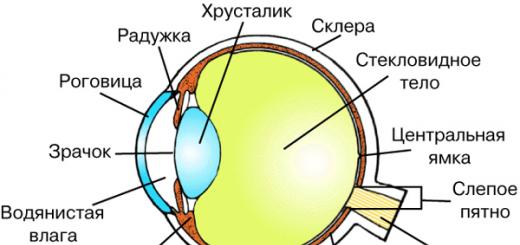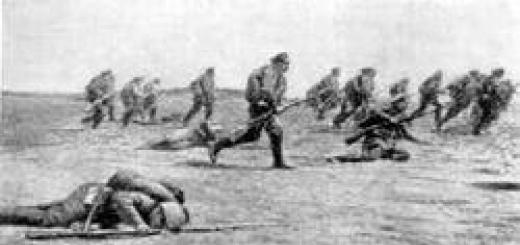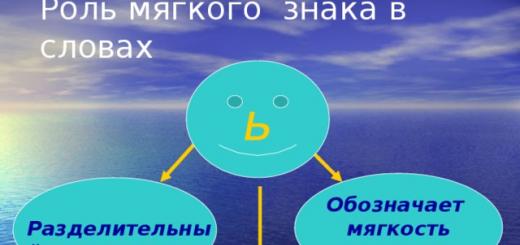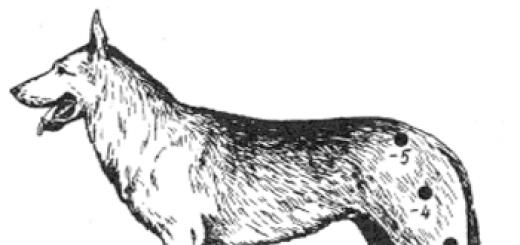There are a number of words in the Russian language (for example, introductory words) that require commas to separate them; Obviously, it is precisely this fact that influences the consciousness of the writers in this case and makes one doubt whether the word “what” is separated by commas, whether a comma is placed before “what” or “after”. But these issues are solved much more simply and in a completely different way. The essence of the rule is not that it is necessary to somehow punctuate the word “what” - it simply requires signs between parts of a complex sentence.
The word “what” is separated by commas
On both sides
Can there be a comma after "what"? Yes, but this is not related to the conjunction itself or the conjunction word. It’s just that after it there is something that in itself requires commas: an introductory construction, a separate phrase, etc. The comma before “what,” which separates parts of a complex sentence, is not affected in any way.
- He was surprised that, having noticed the charming Sonya, his acquaintances were trying to quickly sneak away. (after “what” is an adverbial phrase)
- Ignat agreed that it looked like we wouldn’t have time to get to the city today. (after “what” is an introductory word)
Before the word
Why do commas even appear in the word “what”? “What” is a conjunction or pronoun, often acting as a connective word. It connects parts of a complex sentence. And in this case, except for rare exceptions, which are discussed below, a comma is required. The sign is always placed before the conjunction - this is the answer to the frequent question “Is a comma placed before the “what” or after?”
- He didn't tell me what was in the envelope.
- We thought he had already returned from a trip abroad.
No comma needed
Is there always a comma before “what” or not?
1. Usually a comma is used, but there is an exception. We are talking about complex sentences with homogeneous subordinate clauses connected by the conjunction “and”. These are sentences in which the main clause is joined by two (sometimes more) subordinate clauses that are similar in meaning. They answer the same question, although they may be joined by different unions. If there is an “and” between them, then a comma is not placed before the second conjunction.
- He told me what happened in the office and what he thought about it. (told you about what?)
- The child quickly understands what actions it is better not to do and what happens if the prohibition is violated.
2. Sometimes the combination with the conjunction “what” is not a subordinate clause; then the comma is not needed. This is not difficult to check: without the part of the phrase with the conjunction “that,” the sentence loses its meaning.
- They will always find something to ban.
- He has something to say.
3. Of course, there is no need to break stable expressions like “just now” with a comma.
- The film has just started.
- We will never back down!
4. Compound conjunctions can be formalized using commas in different ways; it depends on the author's intention: whether the comma is placed before the entire construction or in the middle.
- He was late because he overslept again.
- He was late because he overslept again. (but if before the conjunction there are words like “exactly”, “only”, etc., a comma must certainly be before “that”: He was late precisely because he overslept)
Do you know..
Which option is correct?
(according to last week’s statistics, only 21% answered correctly)
How do you know where to put commas and where there is no need for it? This punctuation mark is an important means of formalizing written speech. Often it is he who helps to understand the meaning invested by the author in the text. Commas are placed according to certain rules that are easy to remember. So, why not remember your school lessons?
Historical reference
How to figure out where to put commas? People have been asking this question for more than a millennium. The sign that functions as a comma was invented by the famous ancient Greek philosopher Aristophanes of Byzantium. This happened back in the third century BC. Even then, humanity desperately needed to clarify written language.
Aristophanes of Byzantium came up with a system of punctuation marks that is very far from modern punctuation. He used special points, which had to be placed depending on how the phrase was pronounced when reading. They could be located at the bottom, middle or top of the line. The function of the comma in those days was assigned to the period in the middle.
The sign that is used today is derived from the fraction symbol. The modern comma is a mini-copy of the one used from the 13th to the 17th centuries to indicate a pause.
How to know where to put commas
So, how to quickly and easily learn the rules and stop making mistakes? How to figure out where to put commas and where they are not needed? To begin with, you should remember that this punctuation mark serves to isolate and highlight:

- introductory words, clarifications;
- definitions;
- interjections;
- participial and participial phrases;
- appeals;
- circumstances.
Of course, that's not all. Punctuation can also be used to separate:
- homogeneous members of the sentence;
- between indirect and direct speech;
- between parts of a complex, compound and complex sentence.
Commas can be single or double. Singles break a sentence into parts, fixing the boundaries of these parts. This punctuation mark is needed, for example, when it is necessary to indicate two simple parts in a complex sentence. Paired commas can be used, say, to highlight participial and participial phrases and introductory words.
The meaning of the sentence
The meaning of the sentence will help you understand where to put commas. After all, punctuation marks are used precisely in order to convey it correctly. If a comma is in the wrong place in a sentence, the meaning is inevitably distorted.

For example: “In the afternoon I entertained my sister, who was sick, by reading aloud”; “Elizabeth, with whom I had a fight a few days ago, walked towards me with a cheerful face”; “I gladly accepted the invitation of Anton, whom I had not seen for many days.” Commas are not where they should be or are missing, so the meaning changes. The person who reads the text does not understand what the author wanted to say.
Before unions
To avoid making mistakes, you need to remember the conjunctions that are preceded by this punctuation mark. When, where, what, because, since - just a few of them.

Suppose the sentence uses the conjunction “since.” Where to put commas? Examples help to understand this. Let's say: “Nikolai is delayed because he doesn’t have time to get ready”; “Svetlana will not come because she has urgent matters”; “Ksenia did something she had never done before”; “Vladimir answered in a way that no one before him could. The teacher gave him the highest score.”
Let's say that the sentence contains the conjunction “because”. Where to put commas? It is easy to give examples in this case as well. Let's say: “Alexander was not at the meeting because he is on a business trip”; “Elena failed the task because everyone refused to help her”; “Nicholas refused to marry a rich bride because he didn’t like her at all.” A comma can also be placed between the words “because” and “that.” For example: “The windows were open because voices on the street were clearly audible in the apartment.” This sentence confirms that the windows are indeed open. There is another example: “The windows were open because it was very hot in the apartment.” This sentence explains the reason that prompted them to be opened.
Independent part of a sentence
How do you know where to put commas in a sentence? With the help of this punctuation mark, its independent part is highlighted. How to find her? If the meaning of a sentence is preserved after some part is removed from it, then it is independent. Introductory sentences and participial phrases must be separated by commas.

For example: “Yesterday I was told that my brother Dmitry, returning from Paris, felt unwell.” If we delete the adverbial phrase “returning from Paris,” the meaning of the sentence will remain virtually unchanged.
What other example can you give? “Today Stanislav learned that his girlfriend, passing by his house, did not come to visit him.”
Introductory words
Where should commas be placed if there are introductory words in the sentence? By the way, imagine, fortunately, of course, by the way - just some of them. The rules of the Russian language say to highlight them with commas on both sides.

For example: “By the way, I always knew that this would happen”; “Dmitry, fortunately, has already overcome his illness”; “Anastasia, just imagine, decided not to come visit us”; “Marina, by the way, has been training in this sports club for several years now.”
Appeal
The address is also always separated by commas in the sentence. It is not always located at the beginning; it can be located in the middle or even at the end.
For example: “Are you coming to visit us this week, Lydia?”; “More than anything else, Margarita, I love to read”; “Alexandra, how do you feel about this plan?”
Comparative turnover
Where to put commas? The rules of the Russian language dictate the use of these punctuation marks to highlight comparative phrases. As if, how, precisely, what, than, rather than are conjunctions that make them easy to detect in a sentence.

For example: “I play the guitar better than her”; “He runs like he’s been training for a marathon for the past few years”; “It was safer to travel at night than during the day,” “I often visit Moscow, like many other cities in Russia.”
We must not forget about the existence of exceptions. Comparative phrases are not indicated using commas when we are talking about phraseological units and set expressions. For example: “Cuts like clockwork”; “It’s pouring like buckets,” “It’s stuck like a bath leaf”; "Make yourself at home".
Between homogeneous members
Homogeneous members of a sentence will not always share this punctuation mark. How do you know where to put commas and where not to? However, but, and, but, yes - conjunctions in which this means of punctuation is necessary.
A comma is placed between homogeneous members if they are connected by repeated conjunctions (or...or, or...or, and...and, not that...not that). For example: “In the apartment the light went out and then came on again.” This punctuation mark is not needed when using single conjunctions or, either, yes, and.
Complexity can be created by heterogeneous and homogeneous definitions. A comma is used if the sentence contains homogeneous definitions. Let's say: “an exciting, interesting action movie.” However, this punctuation mark is not needed if heterogeneous definitions are used. For example: “a Hollywood thriller.” “Hollywood” refers to the place where it was created, while “spectacular” expresses the impression.
Participial
Where is the correct place to put commas when talking about sentences with participial phrases? Participles are indicated by this punctuation mark only in those cases when they are located after the word they are defining. We are talking about a word from which a question is asked in a participial phrase. Let's say: “a brother who was surprised at my arrival,” “a friend who was delighted at the news,” “a mother who found out everything,” “an apple tree that grew in the garden.”
Coordinating Conjunctions
This punctuation mark is necessary in a complex sentence that contains coordinating conjunctions. The rules say to put it in front of them. Yes and, either, and, or, yes are examples of such unions.
The most important thing is to correctly understand where the beginning of one sentence and the end of another are. This is easy to do by identifying the subject and predicate. Separating by meaning will also help.
For example: “It rained all day, and the wind continued to rustle outside the window”; “They worked for a long time, but they finished all the work.”
Opposing alliances
Before contrastive conjunctions (a, yes, but), this punctuation mark is necessary in all cases. For example: “His relatives and friends had high hopes for Evgeniy, but he failed to live up to them”; “It rained in the morning, but by lunchtime the weather improved”; “Your friend wants to talk to you, and you need this conversation.”
What else do you need to know
What else can you tell us about where to put commas in accordance with the rules of the Russian language? Using this punctuation mark, interjections, negative, interrogative and affirmative words are highlighted. Let's say: “Life, alas, does not last forever, sooner or later a person dies,” “Certainly, Alexander will join us for dinner today, since he promised me to do so”; “Isn’t it true that Victoria is very pretty? After all, you like this girl too?” “Undoubtedly, Anatoly will go on a trip around the world this week. I learned about this from him himself,” “I hope Timofey does not harbor a grudge.”
Interjections should not be confused with the particles ah, oh, well, which serve to enhance the connotation. For example: “Oh, what a guy he is!”; “Why is Alexander behaving so badly!”; “Oh, how tired I am, I worked all day today without rest.” It is also necessary to be able to distinguish the particle o, which is used when addressing. Let's say: “Oh mountains, mountains!”; "Oh fields, endless fields."
Conclusion
Punctuation errors can distort the meaning of the text more than spelling errors. The latter can always be passed off as a typo, while missing a comma or using it in the wrong place will not allow the reader to understand what the author wanted to say.
It is understanding the meaning that allows you to place punctuation marks correctly. Of course, it is important to remember the rules regarding the placement of commas in a sentence.
You already know that union– this is an auxiliary part of speech, with the help of which a connection is drawn up between parts of sentences, individual sentences in a text, or between words as part of a simple sentence.
Union"HOW"very often requires the isolation of different syntactic structures.
To understand when to put a comma before a conjunction " HOW", and when not, look at the following examples.
Comma before the conjunction "HOW" is put
1. Commas highlight or separate phrases beginning with a conjunction"HOW"
1) if they denote assimilation , without other shades of meaning (" HOW" has the meaning " like»).
For example: Below it is the Caucasus , like the edge of a diamond, shone with eternal snow. Her voice rang , like a bell. Her green eyes sparkled , like gooseberries. And he saw himself rich , like in a dream. (Krylov) His hands were shaking , like mercury. (Gogol) The air is clean and fresh , like kissing a child...(Lermontov) Like a seagull , the sail there is white in height.
Comparative phrases in our language not only convey similarities or differences, but also give beauty and expressiveness to the language.
The punctuation rule about the comparative phrase is not so complicated: it is always separated by commas on both sides.
For example: At the bottom , like a mirror , the water glistened. Around the tall brow , like clouds , the curls turn black. (Pushkin) Below , like a steel mirror, The lake streams turn blue. (Tyutchev) Sparkled brightly in the sky , like a living eye , first star. (Goncharov) Anchar , like a menacing sentry, stands alone in the entire universe (A.S. Pushkin).
What are the difficulties and where do the mistakes come from?
First difficulty- insufficiently thoughtful attitude to the text. If you do not understand that the sentence is comparing something to something else, you will not notice the comparative phrase. Here's a simple conclusion: always try to understand the text you are writing down.
Second difficulty is that among comparisons there are syntactic “dwarfs” and syntactic “giants”. This is what “dwarf” comparisons can look like; they can be accidentally overlooked.
For example: I myself , like a beast , was alien to people and crawled and hid , like a snake(M. Yu. Lermontov).
And here’s what “giants” comparisons might look like: In front of them , like ocean waves petrified during a storm, mountain ranges spread out.
What kind of trouble can be caused with such a proposal?
First, just forget to close the turn with a comma. This misfortune happens with all common phrases: having “caught” its beginning, many do not retain it in memory until the end - and then goodbye, second comma!
Secondly, without thinking about the meaning of the phrase, cut the “giant”, hastening to put a comma ahead of time, for example after the word petrified, and thereby turn the sentence into complete nonsense.
2) If there is an indicative word in the main part of the sentence so, so, so, so.
For example: The Lyceum gave Russia such people , like Pushkin, Pushchin, Delvig. The coachman was equally amazed at his generosity , like the Frenchman himself from Dubrovsky’s proposal. (Pushkin) Nowhere else at a mutual meeting do they bow so nobly and naturally , like on Nevsky Prospekt. (Gogol) His facial features were the same , just like my sister. (L. Tolstoy) Laevsky is certainly harmful and just as dangerous to society , like a cholera microbe... (Chekhov) Everything around is somehow churchy, and the smell of oil is as strong as in a church. (Bitter)
3) If the turnover begins with the combination like.
For example: Trees , just like people , have their own destiny. To Moscow , like the whole country, I feel my sonhood , like an old nanny(Paustovsky). In her eyes , as well as throughout the face, there was something unusual. Just like at last year's competitions, the athletes of the Russian Federation were ahead;
4) If union "HOW" included in the introductory sentence . The following expressions are most often used as introductory sentences:
As I remember now, how they spoke, how we learned, how some people think, as well as combinations like now, as one, as a rule, as an exception, as usual, as always, as before, as now, as now, as on purpose and so on.
For example: It was , as you can guess, our heroine. Residents of the house are all , as one , poured out into the yard. I see , as it is now , the owner himself... (Pushkin) Classes have begun , as usual , at nine o'clock in the morning. I remember , like now , my first teacher at school. How on purpose , there was not a penny in my pocket. Commas , usually , participial phrases are highlighted. Spartakiad , as usual , takes place in the summer.
But! The indicated combinations are not separated by commas if they are part of the predicate or are closely related to it in meaning.
For example: Classes start as usual. Snowfalls occur in December as a rule (=usually). Yesterday went as usual(i.e. as usual);
5) in revolutions none other than and none other than; the same as and the same as.
For example: Rhine Falls in front nothing else , How low water ledge (Zhukovsky). But in front of her was none other , How traveling Aigle, a famous collector of legends, fairy tales, tales. It was none other , How Rylov.
2. If the application is with a union"HOW"has the meaning of causality, it is separated by commas.
For example: Like a true Frenchman, Triquet brought a verse to Tatyana (A.S. Pushkin) in his pocket. Why did he bring the verse to Tatyana? - like a true Frenchman.
If the application has no additional values, it is separated by a comma.
For example: Such a tool , like a screwdriver , always useful on the farm. Neither one nor the other question can be raised here.
3. In a complex sentence, when attaching a subordinate clause:"HOW"acts as a subordinating conjunction and connects the subordinate clause with the main one.
For example: He sees , like a field father cleans up. Love jumped out in front of us , like it jumps out of the ground murderer, and amazed us both at once. I looked for a long time , how the candle burns.
(Reminder: how to distinguish a complex sentence from a complex sentence? In a complex sentence, you can ask a question from one part of the sentence to another. Using the example above: " I looked for a long time- for what? - how the candle burns". In complex sentences, the parts are equal).
Comma before conjunction"HOW" not placed
1. Turnovers with a union"HOW"are not separated by commas
1) If the meaning of the circumstance of the course of action comes to the fore in circulation (to the question How?); Usually such phrases can be replaced by the instrumental case of a noun or an adverb.
For example: Buckshot rained down like hail.(Lermontov) (Compare: rained down like hail .) Dreams disappeared like smoke. (Lermontov) Like a demon is insidious and evil(Lermontov) (Compare: demonically insidious.)
The ring burns like heat.(Nekrasov) In anger, he thundered like thunder and sparkled like steel. The horse flies like a snowstorm, like a blizzard hurries. They flared like lightning in the sky, like fiery rain fell from the sky.
2) If the main meaning of the phrase is equating or identifying.
For example: …You loved me as property, as a source of joy, worries and sorrows...(Lermontov) (Compare: ...loved me, considering me his property.) …He[Judas] handed over his stone as the only one what he could give(Saltykov-Shchedrin);
3) If union "HOW"has the meaning "as" or turnover with the union "HOW" (application) characterizes an object from any one aspect.
For example: Rich, good-looking, Lensky was accepted everywhere as a groom. (Pushkin) I speak like a writer. (Gorky) My ignorance of the language and silence was interpreted as diplomatic silence. (Mayakovsky) We know India as a country of ancient culture. The public appreciated the early Chekhov as a subtle humorist. We know Lermontov more as a poet and prose writer and less as a playwright. I will keep this letter as a memory. Yuri Gagarin made history as the world's first astronaut. The environmental issue arises as the main question of today.
4) If the turnover forms the nominal part of the compound predicate or the meaning is closely related to the predicate (usually in these cases the predicate does not have a complete meaning without a comparative phrase).
For example: Some are like emerald, others are like coral. (Krylov) She herself walked like wild. (Goncharov) I became like a child in soul. (Turgenev) Father and mother are like strangers to her. (Dobrolyubov) I watched how. (Arsenyev)
She behaves like a mistress.(If we take the predicate “ holds on» without turnover « like a mistress", then it turns out " she's holding on", and you might think that she is holding on to something.)
Compare also: to feel as if in one’s own element, behaves as if insane, to understand as a hint, to perceive as praise, to recognize as danger, to look at as a child, to greet as a friend, to evaluate as an achievement, to consider as an exception, to take for granted, to present as a fact, to qualify as a violation of the law, note as a great success, interest as a novelty, put forward as a project, justify as a theory, accept as inevitable, develop as a tradition, express as a proposal, interpret as a reluctance to take part, define as a case of a separate application, characterize as a type, stand out as talent, formalize as an official document, be used as a phraseological figure, sound like a call, enter as an integral part, appear as a representative, feel like a foreign body, exist as an independent organization, arise as something unexpected, develop as a progressive idea, carry out as an urgent task and so on.;
5) If comparative phrase is preceded by negation Not or words completely, completely, almost, like, exactly, exactly, directly, simply and so on.
For example: I cultivated in myself this feeling of holiday not as rest and simply a means for further struggle, but as a desired goal, the completion of the highest creativity of life. (Prishvin) It was almost as bright as day. Children sometimes think just like adults. The girl's hair curls exactly like her mother's. The newspaper was not published as always. He just like a child.
6) If turnover has the character of a stable combination .
We have come to the most interesting case - phraseological units. Our speech is permeated with phraseological units. These are stable phrases, colored with irony, cunning, and slyness.
For example: I need a fifth leg like a dog, it will help like a poultice for a dead person.
Phraseologisms bring into our speech not only imagery, but also mischief and a smile. And what is very important is that they do not require a comma before the conjunction" HOW"!
For example: He's everywhere felt at home. Brother and sister similar as two peas in a pod. At the lion's It was like a mountain had been lifted off my shoulders.(Krylov) Tell the doctor to bandage his wound and took care of him like the apple of his eye. (Pushkin) The young couple were happy, and their life flowed like clockwork. (Chekhov)
There are no strict grammatical rules to help distinguish phraseological units from ordinary comparative phrases. You just need to be able to “recognize when you meet” as many phraseological units as possible.
Among the stable phrases that are not separated by commas, there are also “dwarfs”: works like an ox(or like a horse), tired or hungry as a dog, stupid as a plug, white as a harrier, mad, crazy, rooted to the spot and so on. There is no comma before " HOW"in combinations no how no And right here. A phrase of impressive size is not separated by commas either. as if nothing had happened.
Compare also: white as a harrier, white as a sheet, white as snow, pale as death, shines like a mirror, the disease vanished as if by hand, feared like fire, wanders like a restless person, rushed like crazy, mumbles like a sexton, ran in like crazy, spins like a squirrel in a wheel , squeals like a pig, I see like in the daytime, everything is as if on selection, jumped up as if stung, looked like a wolf, stupid as a cork, naked like a falcon, hungry like a wolf, as far as the sky from the earth, trembling as if in a fever, trembling like an aspen leaf, he's like water off a duck's back, waiting like manna from heaven, fell asleep like the dead, healthy as an ox, knows like the back of his hand, walks along like a man sewn, rolled like cheese in butter, sways like a drunk, swayed like jelly, red as a lobster, strong like an oak tree, screams like a catechumen, flies like an arrow, beats like Sidorov's goat, bald as a knee, pours like a bucket, waves his arms like a mill, rushes about like a madman, wet like a mouse, gloomy like a cloud, people like herrings in a barrel, not to be seen like your ears, dumb as a grave, running around like crazy, needed like air, stopped dead in your tracks, remained like a stranded lobster, sharp as a razor, different as heaven from earth, turned white as a sheet, repeated as if in delirium, you'll go like a dear, remember what was the name, hit like a butt on the head, looked like two peas in a pod, sank like a stone, loyal like a dog, stuck like a bath leaf, fell through the ground, disappeared as if sank into water, just like a knife to the heart, burned like in fire, dissipated like smoke, grew like mushrooms after the rain, fell out of the blue, fresh as blood and milk, fresh as a cucumber, sat as if on needles, sat as if on coals, sat as if chained, listened as if spellbound, looked as if enchanted, slept like the dead, slender like a cypress, hard as a stone, dark as night, skinny like a skeleton, cowardly like a hare, died like a hero, fell like a man knocked down, rested like a ram, stubborn like a donkey, tired like a dog, whipped like a bucket, walked like being submerged in water, cold as ice, black as hell, feeling at home, staggering like a drunk, walking as if to execution and so on.
2. In addition, the word "HOW" can be part of a compound union both... and... or because, as well as revolutions since, since, as much as possible, as little as possible or more. In such cases, a comma is placed either before " HOW", or before the whole complex union.
For example: He has excellent grades in both Russian and mathematics. This topic is touched upon in both poetry and prose. Both children and adults love fairy tales. Avoid empty speeches, as their outcome is repentance.
He finished the story as they reached the place. Larisa worked in a hairdresser while Ivan was finishing college.
Since the eternal judge
He gave me the omniscience of a prophet,
I read in people's eyes
Pages of malice and vice.
(M. Yu. Lermontov)
3. In a complex sentence with homogeneous subordinate clauses after coordinating conjunctions.
For example: It’s nice to listen in a warm room to how angry the wind is and how the taiga groans.
4. Union"HOW" can be present in a sentence without attaching absolutely any semantic-syntactic block, but only as a means of expressiveness of speech.
For example: We have worked hard; I tried not to be separated from my friends as long as possible; The weight of the luggage seemed to lessen; I was just about to go to the skating rink and so on.
A comma is placed before the conjunction HOW in three cases:
1. If this conjunction is included in phrases that are close in their role in the sentence to the introductory words, for example: AS A RULE, AS AN EXCEPTION, AS A CONSEQUENCE, AS ALWAYS, AS NOW, AS ON PURPOSE, AS FOR EXAMPLE, AS NOW: In the morning, as if on purpose, it started to rain;
2. If this conjunction connects parts of a complex sentence, for example: We watched for a long time as the coals of the fire smoldered;
3. If the sentence contains a circumstance expressed by a comparative phrase that begins with the conjunction HOW, for example: Her voice rang like the smallest bell;
Please note: if the sentence continues after the phrase with the conjunction HOW, then you need to put another comma at the end of the clause. For example: Below, the water shone like a mirror; We watched for a long time as the coals of the fire smoldered, unable to tear ourselves away from this spectacle.
The phrases with the conjunction HOW are not isolated in five cases:
1. If the phrase with the conjunction HOW in a sentence acts as an adverbial circumstance of the course of action, for example: The path twisted like a snake. In such cases, the phrase with HOW can be replaced with an adverb (IN SNAKE) or a noun in the instrumental case (SNAKE). Unfortunately, the circumstances of the course of action cannot always be distinguished with complete confidence from the circumstances of comparison.
2. If the phrase with the conjunction HOW is part of a phraseological unit, for example: During lunch she sat as if on pins and needles;
3. If a phrase with the conjunction HOW is part of the predicate and a sentence without such a phrase does not have a complete meaning, for example: She behaves like a mistress;
4. If the conjunction HOW stands between the subject and the predicate (without this conjunction a dash would have to be placed there), for example: The lake is like a mirror;
5. If the comparative phrase is preceded by the negation NOT or the particle AT ALL, COMPLETELY, ALMOST, LIKE, EXACTLY, EXACTLY, SIMPLY, for example: They don't do everything like neighbors or Her hair is curly just like her mother's;
In addition, we must remember that the word AS can be part of the compound conjunction AS... SO AND... or SO AS, as well as phrases SINCE AS, SINCE THE TIME AS, AS LESS (MORE) POSSIBLE, etc. In this case, naturally, a comma is not placed before HOW, for example: All the windows, both in the manor's house and in the servants' rooms, are wide open.(Saltykov-Shchedrin). He did not take cutlets with him for breakfast and now regretted it, since he was already hungry(According to Chekhov).
Exercise
I would have heard the door opening.
She was pale with some kind of Hindu pallor, the moles on her face became darker, the blackness of her hair and eyes seemed even blacker (Bunin).
And is this really how Paris lived now? (Bunin).
Well, I’ll help, father, just don’t blame me if it doesn’t turn out as planned.
I rarely visited “noble” houses, but in the theater I was like one of my own - and I ate a lot of pies from pastry shops (Turgenev).
When I went to bed, I, I don’t know why, turned around on one leg three times, put on lipstick, lay down and slept like a log all night (Turgenev).
It will sound and whine like a string, but don’t expect a song from it (Turgenev).
Everything about us is not like people! (Saltykov-Shchedrin).
Now, wrapped in a cap and a cloak, from under which a rifle protruded, he rode with one murid, trying to be noticed as little as possible, carefully peering with his quick black eyes into the faces of the inhabitants he came across along the road (Tolstoy).
Millions of people committed against each other such countless atrocities, deceptions, betrayals, thefts, forgeries and the issuance of false banknotes, robberies, arson and murders, which the chronicle of all the courts of the world will not collect for centuries and for which, during this period of time, people, those who committed them did not look at them as crimes (Tolstoy).
The guests arrived out of the blue.
A boy of about fifteen quickly came out of the door to meet him and stared in surprise at the newcomers with sparkling eyes as black as ripe currants (Tolstoy).
While Hadji Murad was entering, an elderly, thin, thin woman came out of the inner door, wearing a red beshmet on a yellow shirt and blue trousers, carrying pillows. (Tolstoy).
I did not accompany the captain as a servant. The clean spring air, compared to prison, also cheered her, but it was painful to step on the stones with feet unaccustomed to walking and shod in clumsy prison boots, and she looked at her feet and tried to step as lightly as possible (Tolstoy).
One of them, the most extravagant, was that I wanted to go to him, explain myself to him, confess everything to him, frankly tell him everything and assure him that I did not act like a stupid girl, but with good intentions (Dostoevsky).
So I studied and studied, but ask me how a person should live, I don’t even know (Tolstoy).
These experiments could have been carried out either a month earlier or a month later.
The streets between the houses were narrow, crooked and deep, like cracks in a rock (Andreev).
Amateurs use this fish as a natural clock in a room aquarium (According to V. Matizen).
In the west, the sky is greenish and transparent all night, and there, on the horizon_ as it is now_, something is smoldering and smoldering... (Bunin).
Rostov felt how, under the influence of the hot rays of love... that childish smile blossomed on his soul and face, which he had never smiled with since he left home (Tolstoy).
There were people in the carriage like sardines in a barrel.
It contains irony, not as a style feature or technique, but as part of the author’s general worldview (Lakshin).
When Stepan Trofimovich, already ten years later, conveyed this sad story to me in a whisper, having first locked the doors, he swore to me that he was so dumbfounded then on the spot that he did not hear or see how Varvara Petrovna disappeared (Dostoevsky).
But the eyes don’t seem to be stupid and shiny, like Maria Kresse’s (Bulgakov).
“If they knew that you wanted this, the holiday would be cancelled,” said the prince, out of habit, like a wound clock, saying things that he did not want to be believed (Tolstoy).
Armande was already beginning to despair when the local curé, François Loiseau, arrived from Auteuil and became friends with Moliere while he was living in Auteuil (Bulgakov).
But before they had time to rise, a bell rang impatiently behind the doors upstairs (Bulgakov).
“Torment,” he said, “them: now their prayer book is gone,” and he galloped past; and behind this stratopedarch are his warriors, and behind them, like a flock of skinny spring geese, are boring shadows, and everyone nods to the ruler sadly and pitifully, and everyone quietly moans through their crying: “Let him go! “He alone prays for us” (Leskov).
Seeing this, people stopped dead in their tracks. “We've eaten enough, my dears! We celebrated the winter, but by spring our stomachs were sagging!” - Porfiry Vladimirych is reasoning with himself, and he, as if on purpose, had just brought all the accounts of last year’s field farming into clarity (Saltykov-Shchedrin).
As if on purpose, he didn’t come today, and I still have a whole terrible night ahead of me! (Bunin).
Understand that this child whom you are now receiving in the Poklen house is none other than Mister de Molière! (Bulgakov).
The bazaar is like another city within the city (Bunin).
However, the consistent application of this method, which treats literature not as the fruit of organic creativity, but as a medium of cultural communication, eventually began to slow down the development of literary criticism (Epstein).
Next to him she felt like she was behind a stone wall. He had been silent until now, and no one paid any attention to him, but now everyone looked back at him, and, probably, everyone wondered how he could still remain unnoticed (Leskov).
Still young, handsome in appearance, with a fortune, gifted with many brilliant qualities, undoubted wit, taste, inexhaustible gaiety, he appeared not as a seeker of happiness and protection, but rather independently (Dostoevsky).
Half of them even died, but they were not amenable to education: they stood in the yard - everyone was amazed and even shied away from the walls, but everyone just looked at the sky like birds with their eyes squinting (Leskov).
He screams like an eagle: stop, I’ll shoot! (Bunin).
Conjunctions are one of the most difficult topics that students encounter. Teachers spend a long time trying to explain what this part of speech is and how to handle it.
So, conjunctions are an independent part of speech that connects two sentences with each other. But it's not that simple.
After all, there is one more thing that absolutely every person needs to know: which conjunctions are preceded by a comma.
Rules for placing commas before conjunctions in Russian
According to the rule, a comma is placed before all conjunctions in complex sentences.

But there are some nuances.
If there are particles in front of the union "only", "merely", "exclusively"(and others similar to them) you can safely skip the comma. She's not needed there. As, for example, in this sentence:
“I only smiled when I was sure no one was watching.”
You can also skip the comma when there are words before the conjunction such as “especially”, “that is”, “namely”, “in particular”(and others similar to them). For example, take the following sentence:
“There was always a desire to live in his eyes, especially when he saw me.”
Cases when a comma before “and” is not needed
Let's list these points:
- A conjunction connects homogeneous members of a sentence:
“I equally loved peaches, grapes, and apricots”;
- There is a common minor term:
“Lizonka could easily discern the makings of a great artist and ability for music”;
- Several interrogative sentences are combined:
“Where did you see him and what did he say?”;
- Several impersonal sentences are connected:
“You need to add salt and sprinkle the dish with pepper.”
Depending on the meaning, a complex conjunction can be divided into several parts and separated by commas. For example:
- “Lisa didn’t show up for work, because overslept (emphasis on the event itself)”;
- “Lisa didn’t show up for work because overslept (emphasis on the reason).”
Some conjunctions always break apart and are separated by commas. For example: “such as”, “more than”, “better than” and others (a comma before “not that” and “not that” is not needed).
A complex conjunction is separated by a comma if:
- Before the conjunction there is a particle “not”;
- The conjunction is preceded by intensifying words and other particles;
- The first part of the conjunction is included in the homogeneous members of the sentence.
A comma is not needed when a complex conjunction comes before the main clause.
Examples of placing commas before some conjunctions:
- "I wanted to buy or red, or black, or white sneakers, but my father chose green ones, and I had to agree”;
- "You looked at me like that as if I betrayed you and gave you to the wolves”;
- "Clouds have covered the sky, And the sun was no longer visible";
- "I loved him, But he never loved me";
- “Misha has always been kind, A Gosha was his complete opposite”;
- “He used to hit me hard, That's why I never respected him";
- “Kostya was tall, and Also brown-eyed";
- « I loved him no matter what for already knew him inside and out”;
- "I did not see, How she fell, but I heard her scream”;
- "I've seen better than him, Although no, there has never been anyone better than him”;
- "You motivate me to be better than yesterday, better than Hour ago";
- "I didn't love anyone because your own mother";
- "I wanted to scream but still I held back because it didn’t make any sense”;
- "Every child changes as the world will know";
- « Considering that this task was difficult, you can safely be proud of yourself”;
- “I didn’t think about anything at all. before got into an accident";
- "Thank you friends and family for what they didn’t abandon me in a difficult situation”;
- "Not dollars, namely rubles! – I kept telling Olga”;
- "I will do it, if only will you give me permission";
- “He was too stubborn; than he didn’t want to change, there was no question of our future together”;
- « Not only that he can’t read, and he also speaks poorly”;
- "I never blamed her, even despite the fact that she left when I was five”;
- "I didn't like honey whereas you adored him";
- "I decided not to do anything to don’t embarrass yourself once again”;
- “You are different, you are a welcome guest in his house, regardless weather, mood, condition";
- "I remember every minute of my life since got in an accident";
- "I was Not really stupid, but strange";
- "Because of I was an only child, I grew up selfish”;
- "I'm surprised, however, No less than you, this is frightening, but today your absent-mindedness is especially frightening”;
- “We've been through a lot; that it happened that it was better for no one to know”;
- "You're so sweet What I want to touch you and keep you in dust on a shelf, but you’re not good for anything more”;
- "You would have had to leave anyway, otherwise I would hurt you too much";
- "I love you, as if birds love the heights of heaven";
- "I miss, as well as did you miss me once";
- "I weighed more than enough";
- “If you really want to give up everything, That why are you holding on to me”;
- "I will only smile in case if and you will";
- “I will definitely do everything, after I’ll rest”;
- “Your plans are delightful; in order to to fulfill them, we don’t need to buy anything more”;
- "I liked it equally How yellow, So and blue color";
- "After such words, How "“darling”, “dear”, “sweet”, I feel needed and loved”;
- “I respected Nastya, after all She always kept her word."
Conclusion
Conjunctions are a tricky part of speech. You need to be careful and careful with her. That is why this topic deserves special attention.










